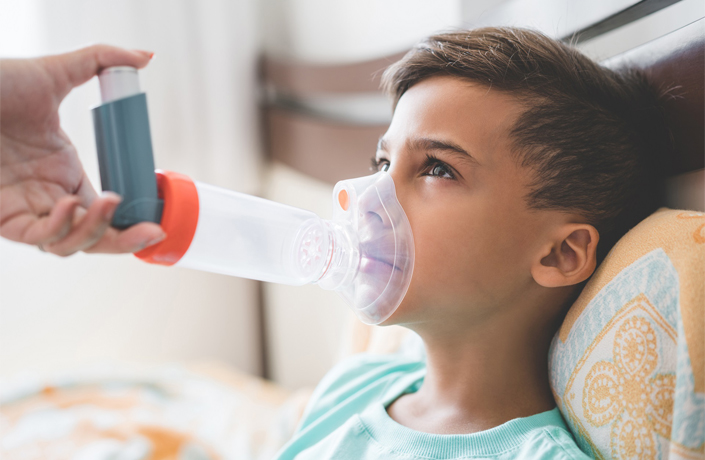
Pediatric asthma
Ediatric asthma is a chronic condition that affects the airways of the lungs. The airways become inflamed and narrow, making it difficult to breathe. Asthma can cause wheezing, coughing, shortness of breath, and chest tightness.
Asthma is a common condition in children, affecting about 8% of children under the age of 18. The symptoms of asthma can vary from mild to severe, and can come and go over time.
The exact cause of asthma is not known, but it is thought to be caused by a combination of genetic and environmental factors. Some of the things that can trigger asthma attacks include:
- Allergens, such as pollen, dust mites, or pet dander
- Exercise
- Cold air
- Respiratory infections, such as the common cold
- Strong emotions, such as stress or anxiety
- Certain medications, such as aspirin or beta-blockers
There is no cure for asthma, but it can be managed with medication and lifestyle changes. The goal of treatment is to control the symptoms and prevent asthma attacks.
The main types of medications used to treat asthma are:
- Quick-relief medications (also known as rescue inhalers) are used to relieve the symptoms of an asthma attack. They work by opening up the airways and making it easier to breathe.
- Controller medications are used to prevent asthma attacks. They work by reducing inflammation in the airways.
Other ways to manage asthma include:
- Avoiding known triggers
- Getting regular exercise
- Getting enough sleep
- Managing stress
If your child has asthma, it is important to work with their doctor to develop a treatment plan that will keep their symptoms under control. With proper treatment, most children with asthma can live normal, active lives.
Here are some additional tips for managing pediatric asthma:
- Teach your child how to use their inhaler correctly.
- Make sure your child has a plan for what to do if they have an asthma attack.
- Keep track of your child’s asthma symptoms and triggers.
- Make sure your child gets regular checkups with their doctor.
If you have any questions or concerns about pediatric asthma, please talk to your doctor.
